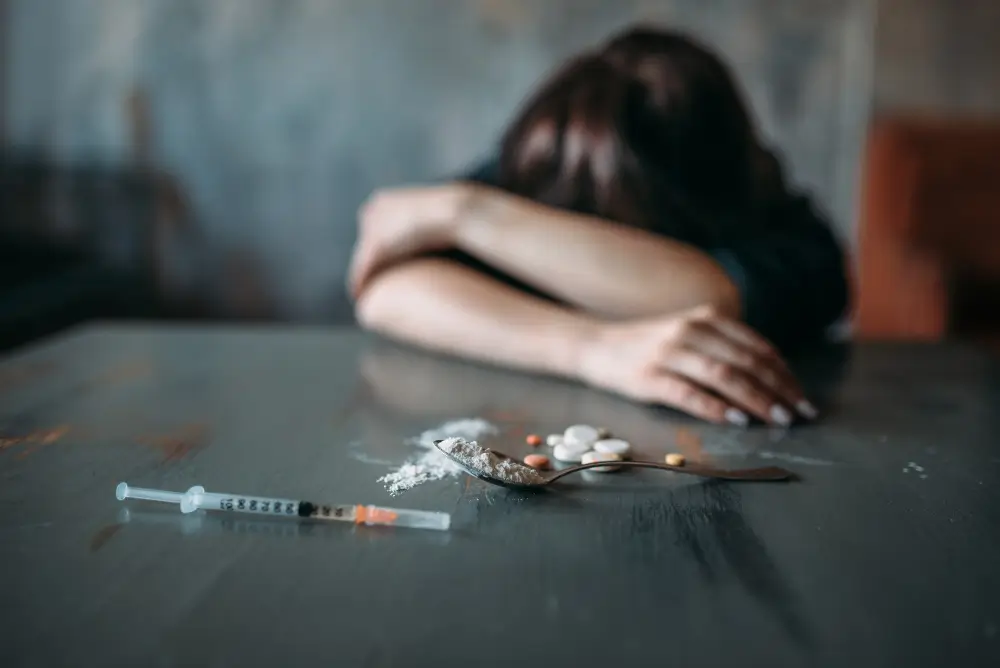Addiction doesn’t always involve drugs or alcohol. There are different types of addiction, including behaviors like gambling, sex, and even internet use. Both substance and behavioral addictions hijack your brain, making you dependent on them to feel happy or, sometimes, even just balanced.
Types of addictions
No one addiction is “worse” than another. Even if you don’t have to worry about withdrawal symptoms, your brain will still crave what’s making it satisfied—regardless of your financial situation, relationship issues, or overall well-being.
Substance addiction
- Substance use disorders (SUDs) might be the most well-known forms of addiction. There are many different types of addictive substances, including
- Alcohol
- Prescription drugs, including benzos and painkillers
- Illicit opioids, like heroin and fentanyl
- Cocaine
- Marijuana
- Meth
Drug or alcohol use doesn’t always start because of experimentation or recreational use. Sometimes, people turn to drugs or alcohol to escape or numb underlying mental health issues. Other times, they might become addicted to a substance after a medical treatment that had them take prescription drugs.
Behavioral addiction
Behavioral addictions can sometimes have a very simple origin. Perhaps you were in a casino with a friend, put down a random bet on a random table to pass the time, and you won. That sudden feeling of winning may have caused a chemical release in your body that you’d never felt before. To replicate that feeling, you then continue to gamble. But, as is almost always the case, the house comes out on top, which can lead to some serious monetary problems (which then will lead to job and family issues as well).
Addictive behaviors don’t start as an addiction but can spiral out of control. Even healthy behaviors can become addictive. These behaviors all have the potential to become compulsive and addictive:
- Eating
- Work (workaholism)
- Exercise (orthorexia)
- Gambling
- Shopping (shopaholism)
- Gaming
- Porn, sex, and/or love
- Internet and/or screens
- Social media
While behavioral addictions don’t necessarily have the same effect on someone’s physical health, they can certainly impact other areas of life.
What addiction does to the brain
No matter what type of addiction someone lives with, the mechanism is essentially the same. Substance use and addictive behaviors work by targeting the reward system in the brain. This floods the brain with feel-good chemicals, like dopamine and serotonin, which cause a sense of pleasure and reward. Soon, the brain causes cravings because it wants the same pleasurable feelings to happen again—the beginning of the addiction cycle.
The addiction cycle
- Tolerance: As the brain craves pleasure from the addiction, it takes more of that substance or behavior to achieve the same level of pleasure and satisfaction.
- Dependence: Over time, the brain learns that it doesn’t need to produce the chemicals that the addiction will produce. So, without substances or compulsive behaviors, it finds it hard to function properly.
- Cravings: To make up for the brain not feeling pleasure or satisfaction, it sends strong craving signals to drink, take drugs, or engage in compulsive behavior.
- Relapse/use: Compulsive use of substances or engaging in addictive behavior—in increasingly high doses—releases the same chemicals in the brain and relieves cravings, no matter what kind of consequences the addiction has on someone’s life.
While the life consequences depend on the type of addiction, many addiction disorders can cause a higher risk of infectious diseases, organ damage, and accidents. The addiction may lead to problems at home, work-related issues, and financial difficulties. While many people will realize that their habits are causing problems, they are unable to control their addiction.
Co-occurring SUD and behavioral addiction
Research shows that many people struggling with one form of addiction are likely to experience another. While some individuals may develop a single addictive behavior, a significant number report multiple co-occurring addictions, such as substance use combined with compulsive gambling, shopping, or gaming .
Studies have also found that those with co-occurring addictions tend to experience more severe consequences, including poorer mental health, increased financial strain, and greater difficulty maintaining relationships.



